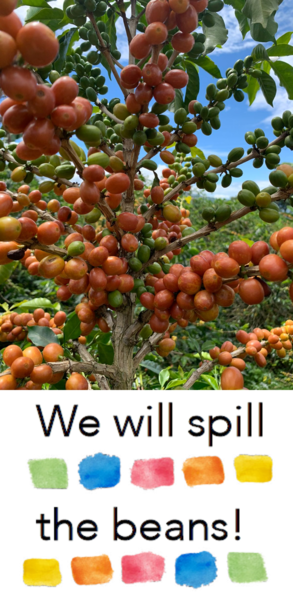Joy & Misery
A Global Perspective on Coffee
01.04.2022
By Malin Klinski & Matthias Langer
Supevisor: Dr. Gesa Lüdecke

For large parts of Western-oriented society, almost every day begins with a hot cup of coffee. The beverage is often considered indispensable for a good morning. Despite a visible trend toward sustainable products in general and sustainable coffee in particular, critical issues along the supply chain of this luxury product are rarely discussed in detail. To examine different insights of social-ecologically relevant viewpoints, we talked to actors along the supply chain and created a magazine based on what we learned along our research journey.
Commercial coffee cultivation is often detrimental to people and nature. Clearing natural forests to grow monocultures harms flora and fauna. Extreme irrigation dries up regional water resources. Whole swaths of land are thus altered. Working conditions of coffee pickers and farmers are often difficult and payment is tied to global capitalist trade networks. Women suffer particularly under this system, as they are often forced to carry out the most poorly paid work. If we then consider the transport of coffee by heavy oil tankers, we can confidently say that the beloved beverage is anything but sustainable.
The question is how to improve this system. While great importance is attached to certificates in trade and sales, our interviews often revealed that they are only of limited use. Certificates are often associated with high costs for farmers and only fewer consumers know exactly what is behind which seal.
The direct contact with farmers, retailers, roasters, and baristas from all over the globe allowed us to get to know many aspects of coffee. In summary, we learned above all that direct relationships with people in coffee-growing areas help to understand the versatile meaning of coffee in different cultures and the complex processes that lead to correspondingly higher prices when coffee beans are produced sustainably and fairly. In the privileged societies of the Global North, there needs to be greater acceptance of reasonable prices in the coffee sector and that comes with more education on the topic. In this case, higher prices mean above all better payment and cultivation methods, as well as less damage to people and planet. Consumption patterns should be reconsidered and drinking less coffee certainly makes sense. Above all, it is important to turn away from cheap, low-quality coffee, which is always and everywhere available at the push of a button.
Read the whole magazine with all our stories and insights from around the globe here.
Downloads
- Final Project von Langer&Klinski_2 (9 MByte)

